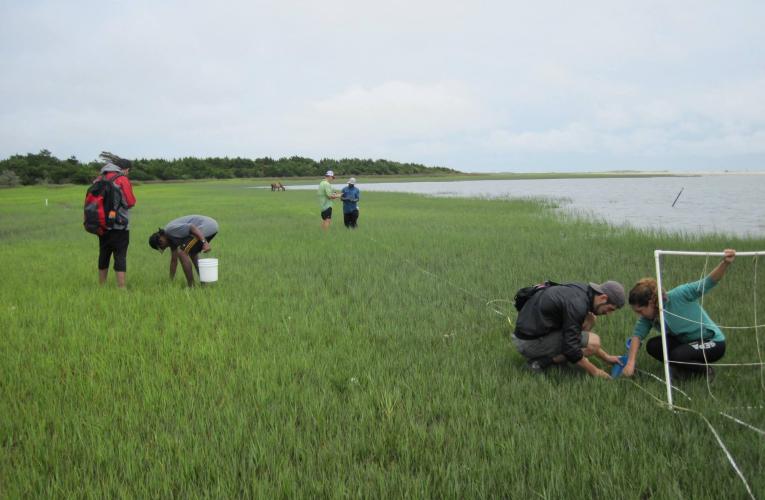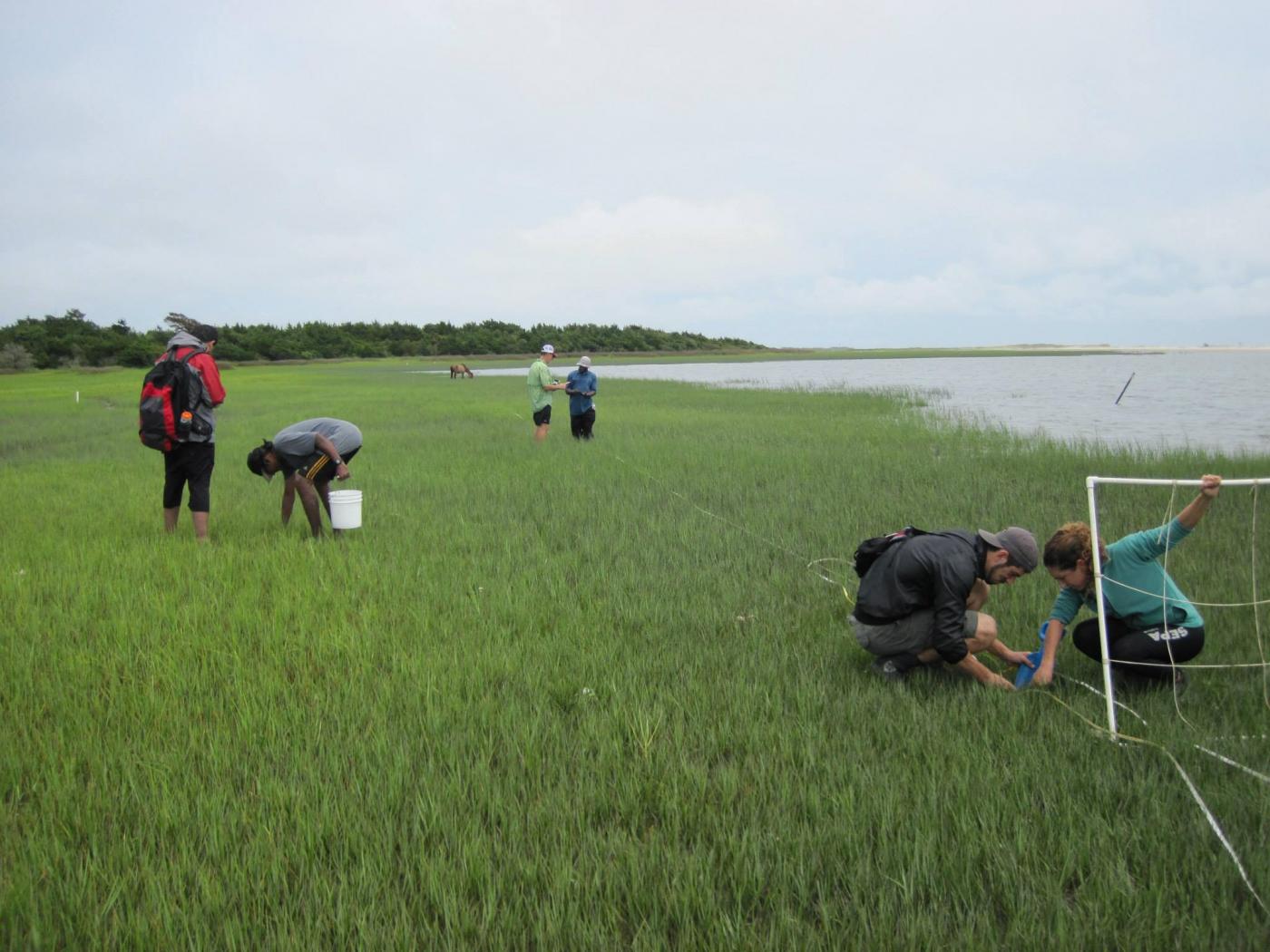DURHAM, N.C. – Understanding human impacts on the ocean and how they, in turn, can also affect our own well-being and the health of our planet will be the focus of “Oceans, Human and Environmental Health,” a new Duke Immerse program for undergraduates this fall at the Duke University Marine Lab.
Enrollment for the semester-long program, which includes a two-week field trip to Duke Kunshan University in China, is limited to 12 students. Applications are now being accepted on a rolling basis.
“The health of the environment and the health of the people living in that environment are tightly linked. This program gives students the opportunity to gain a scientific understanding of these links through field work, coursework and lab work,” says Dana Hunt, associate professor of microbial ecology.
Students will explore issues such how agriculture and aquaculture, pollution, wetland loss, and overfishing and species decline affect coastal water quality and human health. They will learn how to evaluate the health of affected ecosystems using biomarkers, environmental factors and other measures.
They’ll also explore the interactions of these problems with human well-being, environmental justice, resource access and environmental policy.
Duke Immerse is an immersive learning experience for undergraduates in which students explore a central topic through four integrated seminar-style courses led by a small team of faculty.
“For this new program, we wanted to create a syllabus that is relevant not only for environmental science majors, but also for students interested in global health, pre-health biology or engineering – or anyone who’s interested in exploring the topic in depth,” Hunt says.
Students will take three courses – Oceans, Human and Environmental Health; Coastal and Marine Pollution; and Sensory Physiology and Behavior of Marine Animals – and augment what they learn with faculty-guided team Research/Independent Study projects on topics such as the environmental impacts of microplastics in our oceans.
They’ll also take part in extensive fieldwork that includes studying and building restored wetlands with the North Carolina Coastal Federation.
In October, they’ll fly to Duke Kunshan University for two weeks, where they’ll interact with Chinese students and faculty to learn about the universal challenges to environmental health and about issues unique to the United States or China.
“The chance to take advantage of the resources and expertise at Duke’s campus in China and its coastal campus here in Beaufort really broadens the scope of what this program can cover and what students can take away from it,” Hunt says. “It’s a unique opportunity.”
Hunt will lead “Oceans, Human and Environmental Health” with three of her colleagues from the Nicholas School of the Environment. They are Lee Ferguson, associate professor of environmental science and engineering; Grant Murray, associate professor of marine policy; and Dan Rittschof, Norm L. Christensen Professor of Environmental Sciences.
###

